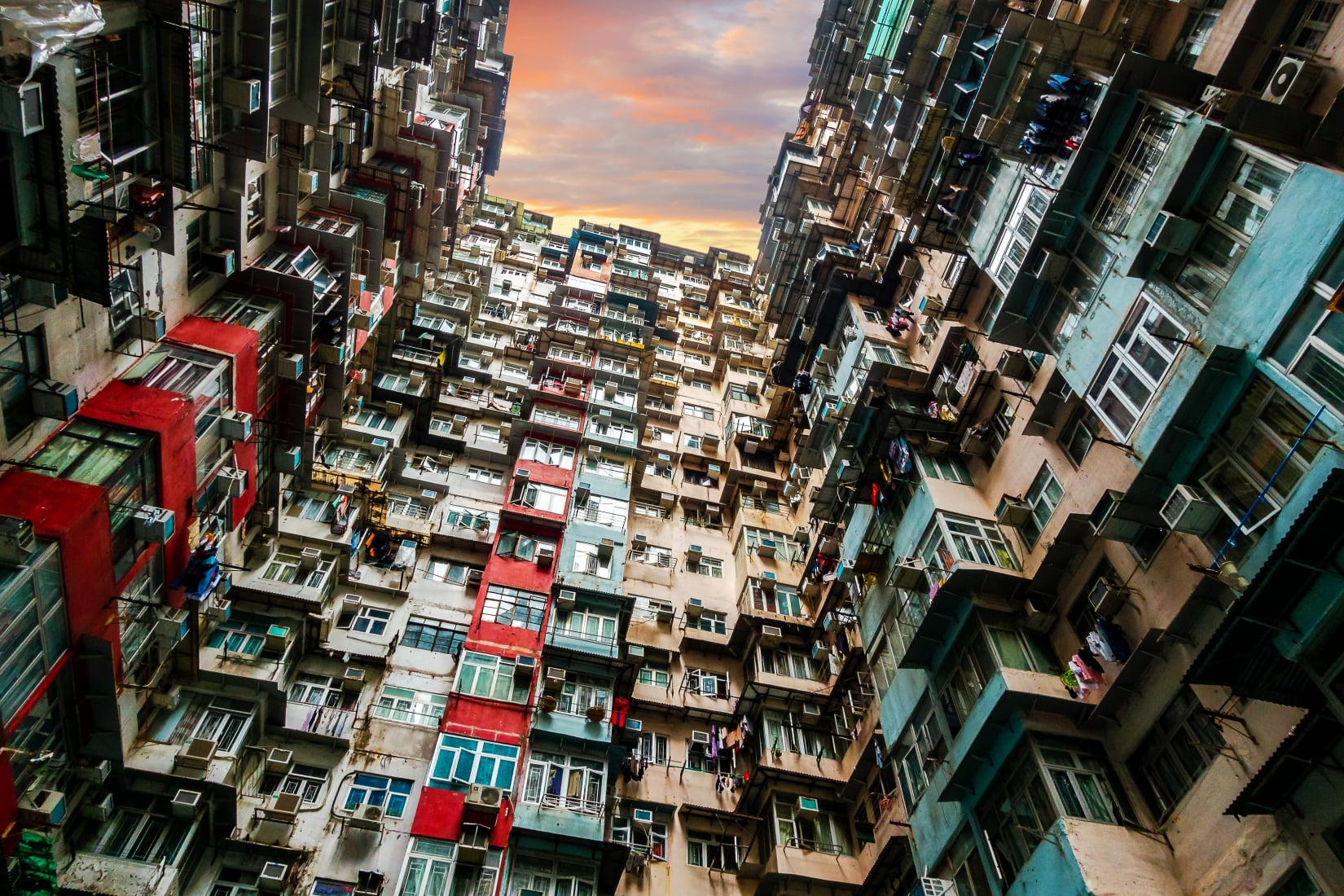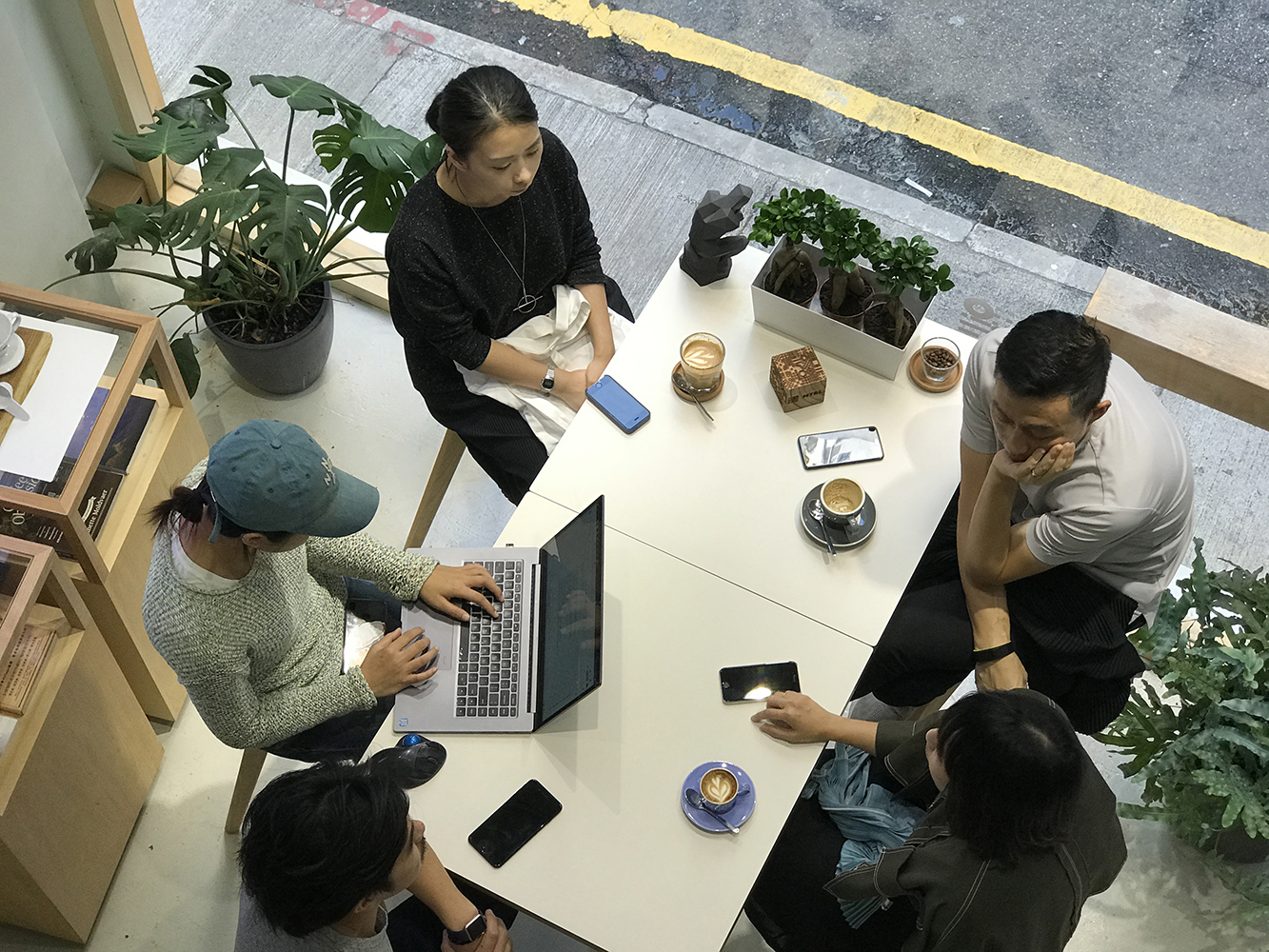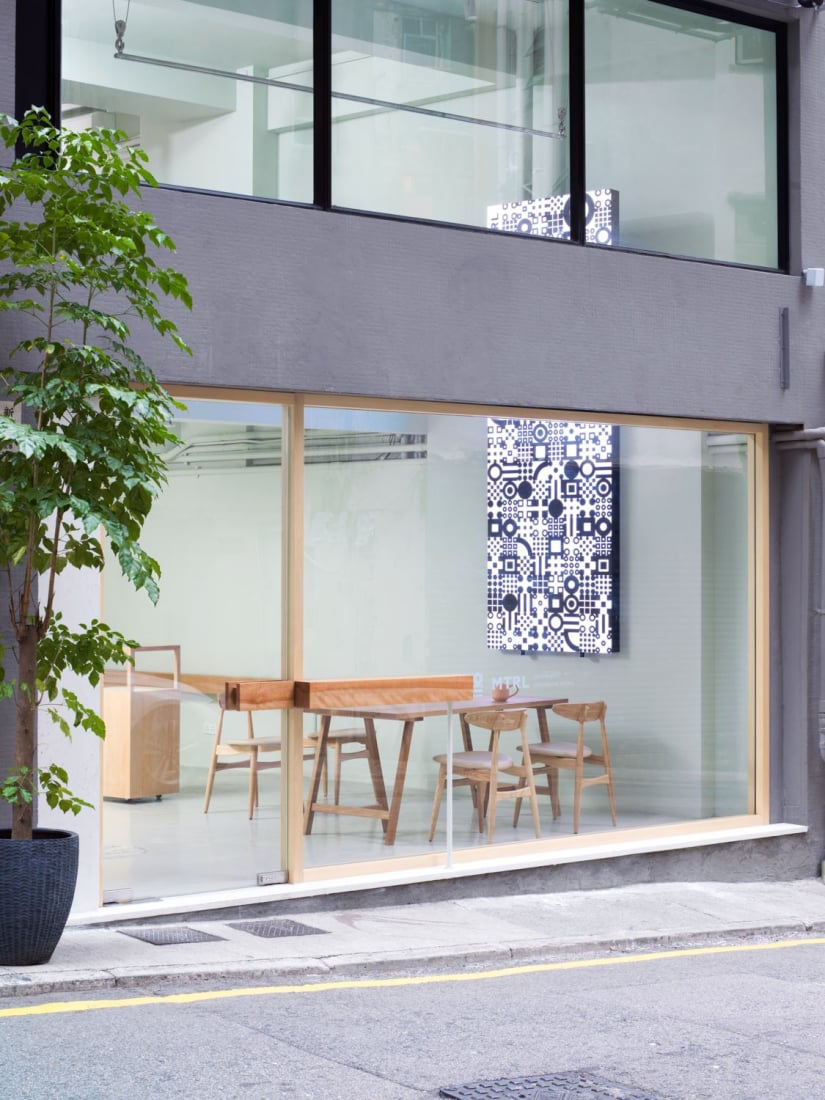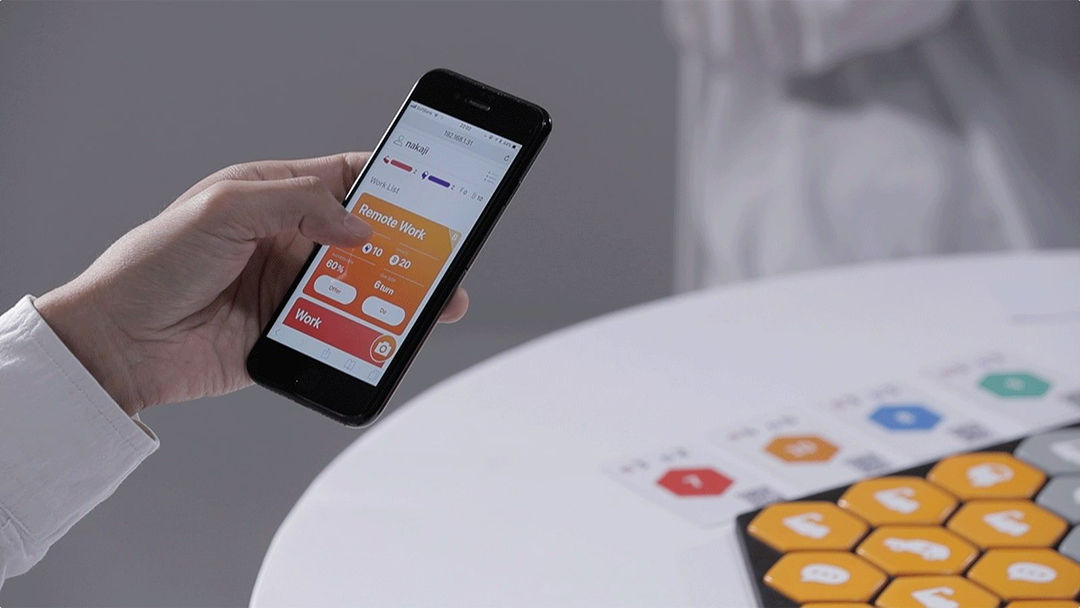Building community and creativity in a ‘messy’ world with Loftwork HK
Loftwork HK co-founder Harvey Chung on carving out a space for innovation and opportunity in the inherently ‘messy’ and ever-changing landscape of Hong Kong and the world.
The world is ‘messy’, companies are stuck in the past, and the creatives are scattered. We speak to Loftwork HK co-founder Harvey Chung about the value of thinking differently, and creating innovation and opportunity in the ever-changing landscape of Hong Kong and the world.

Out of the blue(print)
Harvey Chung embraces the unexpected. The architect, educator and entrepreneur had been following a conventional career trajectory, until he went far, far way – travelling in South America for three months – and had an epiphany: you can’t expect anything.
“You always know what’s going to happen tomorrow, or a week later,” Chung says. “But when you’re travelling like that, in a place you don’t know about, you don’t know what’s going to happen. It makes you think very differently. It’s like, ‘why are we sticking to the status quo?’”
“I know I’m going to do this next week – but why do I have to do that?”
Perhaps it’s befitting, then, that Chung ended up co-founding Loftwork Hong Kong and FabCafe Hong Kong, where no one project is ever the same. Not only does Loftwork seek out a diverse range of projects, as well as diverse collaborators, there’s a kind of notion that every time it should be different.
While such a business model might be problematized by critics as unsustainable, the routine procedure of always sticking to what one feels most comfortable doing is not something Chung is interested in. Chung welcomes the challenge with open arms: “Every time you want to do something new, you need to make a lot of effort and spend a lot of time… but we still want to do it.”
Breaking the mold, in Hong Kong and the world

For Chung, every Loftwork project is exciting because, as he says, “we do it differently.”
Designers – be it interior, web or graphic – are familiar with the process: Clients provide a brief, outlining what they want and how they want to do it, and then it gets done. Business as usual. At Loftwork, it’s a process that ought to be challenged. For Chung, the brief might not be right in the first place.
Up against China and the broader, fast-changing Asian market, companies and businesses in Hong Kong want to innovate, but lack the know-how. According to Chung, clients might misplace their faith in using technology – big data, AI – but fail to understand whether it might even be applicable to their business.
“We help clients find out what they actually want, instead of them telling us what we should do. It’s a satisfying process because you really help them digger deeper into their problems and find solutions for it,” says Chung. “A lot of people have biases, especially when you’re a business owner. You think you know your business really well, but then you forget about your customers.”
For not only Loftwork Hong Kong, but also Loftwork Japan, undergoing such a process can yield important findings and insights. For Chung, finding problems is equally as important as solving problems in the context of design. As he puts it, it’s a “messy” world out there, with technology and data at our disposal. “Designers can help identify these problems – analyzing them, finding a relationship between them, and actually solving them creatively,” he says. “That’s the power of design, I think.”
Drawing hidden talents out of the woodwork through Loftwork
Hong Kong, as in both popular imagination and lived reality, is a financially-driven Asian behemoth, small in size but big in international impact. Low taxation, proximity to Shenzhen and a free-trade environment continue to drive steady international interest in Hong Kong. Here, cultures, histories and industries intersect, making it one of the most diverse cities in the world.
While diversity can breed creativity, creativity also needs opportunities to survive and thrive.
Chung is adamant there are hidden creative talents scattered all over the place in Hong Kong: “There are super talented people who can’t do what they’re passionate about because they’re lacking the opportunities.”
Part of the role that Loftwork Hong Kong plays, then, is to generate opportunities through collaboration with creators and the creator community, which is in line with the broader Loftwork mission to develop an ‘ecosystem’ for businesses, communities and individuals. For Chung, there is a lot of value in gathering people with similar visions – people who, like him and many others at Loftwork, ‘can challenge the status quo’. As he says: “I believe if we can create a proper community, we can really create an impact on society and do great things together.”

If Loftwork creates the opportunities, then the physical space of FabCafe unearths and draws out the hidden talents of Hong Kong. Chung, whose background is in architecture, is a big believer in physical space – and the way it can change people’s minds and behaviors. Though online communities are stronger and more visible than ever before, a space like FabCafe allows for people to come together and physically share an experience.
“People are more sticky through the community if you have a physical location,” says Chung. As he jokes, online communities, “people are not really loyal.”


Though it’s not a daily occurence, FabCafe HK has succeeded in drawing out people, especially diverse sets of people, through a repertoire of different events – including the Hong Kong edition of Global Goals Jam. For the hackathon-like U.N. program, in which people come together to solve the world’s problems, it was both surprising and exciting for Chung to interact with a network of talents one might otherwise never have been able to tap into.
“You never see them; they’re not on the street,” says Chung. “And when you meet someone new, you won’t dive right into these world problems, right away. Through these events, we were able to gather similar-minded people to work towards the same goals.”
Similarly, FabCafe has also succeeded in drawing people who are outside of design – even those from seemingly incompatible worlds. FabCafe is situated in the East-meets-West, hyperlocal-versus-international playground of Sheung Wan – a rich site where, as Chung says, “cross-pollination happens”. By striving to combine different topics and disciplines when creating events, FabCafe emulate this spirit. Chung cites FabCafe’s Headspace: Mindfulness + Creativity + Neuroscience event, an exploration of both technology and health, as a successful example of cross-pollination, whereby interest can be generated for even health and wellbeing people. “Through these events, we meet different groups of people,” says Chung. “There’s no other way to find them. So we have to actively create new things, and say, ‘hey, come over’.”

Building bridges into the future
Education manifests itself continually in Chung’s work and life. In the literal sense, he’s an educator who teaches at the University of Hong Kong, as well as primary and secondary students. Outside of that, a big part of his work is also about educating clients on why it is important to be able to innovate – in this context and in our world.
“Education has not changed so much in the past 30, 40 years, but our world has,” says Chung. Educating others, then, is not only something Chung is passionate about, but something he sees as a duty. “I have kids as well, so education is my responsibility; I must leave something behind for the new generation.”

As Chung sees it, the younger generation are receptive to new ideas. It’s the older generation who are more prone to be stuck in the past, firmly latching onto a resistance for change. “A lot of our clients struggle to see in the long run, especially something that is intangible,” he says. “So this is what I do all the time; I go to business meetings, I spend a lot of effort to try to convey my message – that this important, that you need to be able to see further.”
Chung often uses the case of Kodak and Fuji, at the advent of digital cameras, to drive his point to clients about the dangers of companies growing complacent. “Kodak made the wrong decision and Fuji made the right one,” he explains. “They invested time and money in the long run, and really thought about how they could change the business – which Kodak did not. And I’m sure they were very comfortable back then, they were making a lot of money.”
“‘It doesn’t matter,’ they thought, but when it hits, you’re too late.”
About FabCafe
FabCafe is a creative and international community with physical headquarters in Tokyo, Taipei, Bangkok, Hongkong, Kyoto, Toulouse, Hida, Strasbourg, Monterrey, and Barcelona. A cafe and digital fabrication laboratory all in one. People are invited to design, create and prototype using technology, within an open social environment.
About Loftwork
Loftwork Inc. is a global creative firm, which designs websites, services, communication and spaces through the collaboration. We are located in Taiwan, Hong kong, Tokyo and Kyoto . We also operate owned media and space. Digital craft cafe “FabCafe” , and co-working space “MTRL (Material)” , and the online platform “AWRD”. We are able to provide a wide variety of creatives with creator communities worldwide. Through the design process, we create good impact to society
Related Project
A big corporation and the creative community merge for new ideas.

In imagining the future for both society and the company, Lion Corporation joined forces with the YouFab Global Creative Awards to tap into a vast network of creative communities, ideas and strategies.
Read more
Author: Joanna Lee
Next Contents







